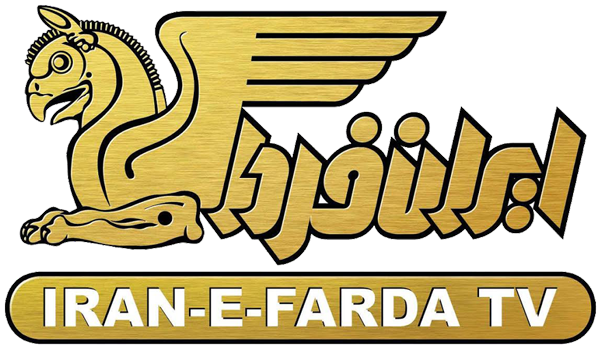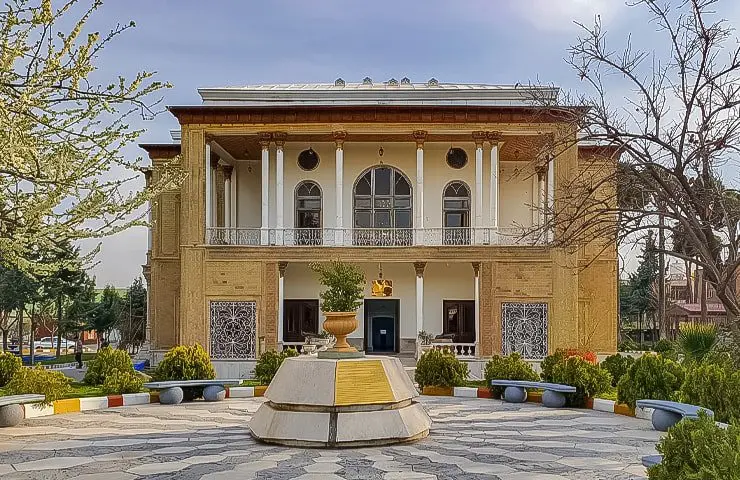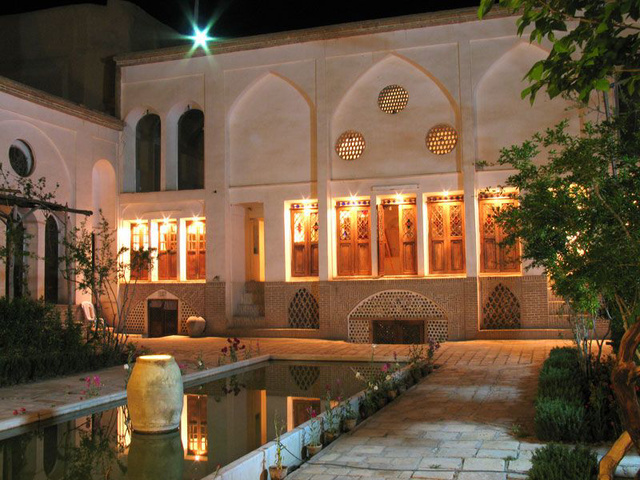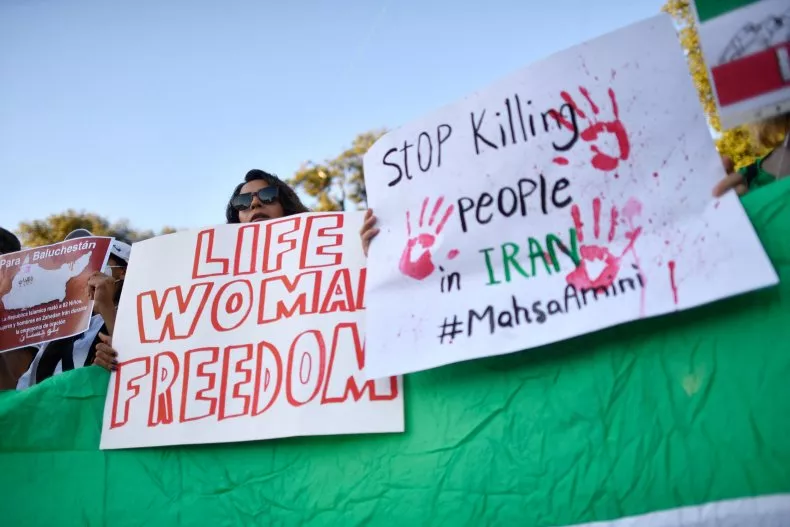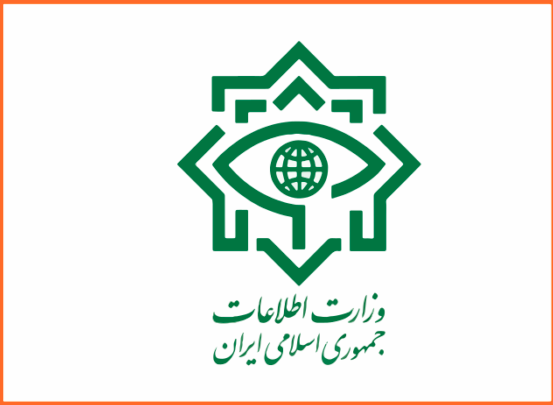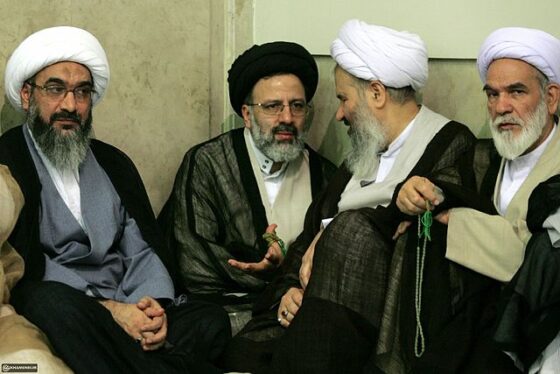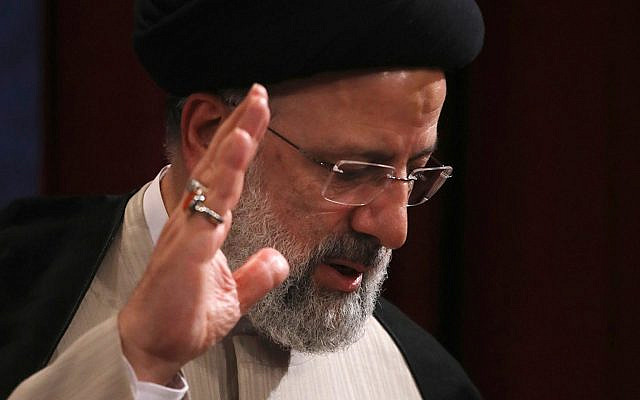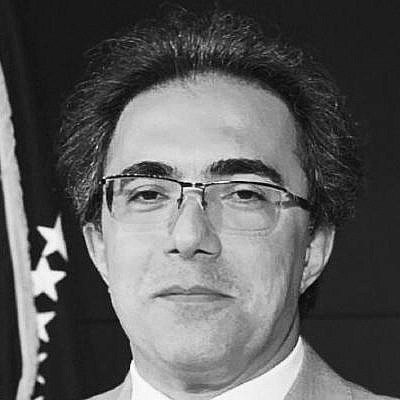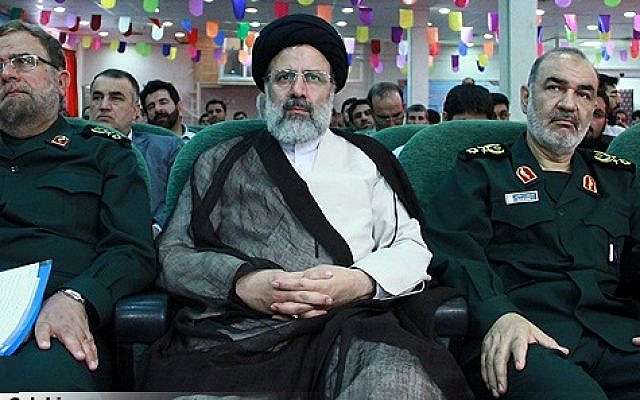Iran Policy in Holding Pattern before Elections
Published on: 2020-08-16
Iran Policy in Holding Pattern before Elections
By Robbie Gramer and Jack Detsch
Brian Hook’s abrupt departure as the Trump administration’s top Iran envoy leaves an uncertain future for the White House’s biggest Middle East policy, two years after President Donald Trump abandoned the Iran nuclear pact and proclaimed he could secure a “new and lasting deal.”
Hook’s replacement, Elliott Abrams, will simultaneously continue as the administration’s envoy for Venezuela, making him responsible for two defining Trump foreign-policy initiatives—neither of which has yielded the kind of high-profile victory the White House once hoped for.
The big question now is who wins this November’s U.S. presidential election. Iran has been rocked by mysterious explosions for weeks and may privately suspect U.S. involvement, but it is wary about rocking the boat before seeing if Trump wins reelection. But there’s also little chance for any last-minute outreach to Iran to secure a new and improved deal before the vote.
“The administration is sunk in a deep rut of its own devising, with no pathway to negotiations,” said Barbara Leaf, a former U.S. ambassador to the United Arab Emirates during the Obama and Trump administrations. “And needless to say, Tehran will not pick up the phone if Washington rings before November 3rd.”
Abrams, the longtime foreign-policy hawk taking over from Hook, would also bring potential baggage to the new role. He is perhaps best known for pleading guilty for lying to Congress over the Iran-Contra scandal during the Ronald Reagan administration. Some former officials think Abrams might use the remaining months before the election to tighten the screws on Iran, whether through an increase in the mysterious attacks inside the coronavirus-racked country or by further deepening U.S. relations with Israel.
“I think Abrams is much smarter than Hook. He may be more effective,” one former U.S. official said. “They don’t have time to get things done, but they do have time to make trouble.”
Iran’s challenge will be to lie low until it knows whom it will be dealing with next year.
“I think the Iranians are concerned about Trump because of how unpredictable he’s been, and I think they see the U.S. as implicated in the explosions,” said Ariane Tabatabai, a Middle East fellow at the German Marshall Fund of the United States who specializes in Iran. “But they’re careful not to talk too much about it because of the fact that then they’d have to do something and they don’t want to rock the boat.”
If Trump does win, some administration officials expect that Iran might finally come to the table to discuss a new nuclear accord, due to the unsustainable pressure from loads of U.S. economic sanctions that have pushed Iran’s economy to the brink.
“When it comes to Iran, the election is a big part of their calculation,” one U.S. official said. “If Trump ends up winning the election, I think you’re going to end up seeing some movement on these things.”
“We still believe the only way the current Iranian government has ever come to the table is pressure,” the official added.
Hook shepherded the so-called “maximum pressure” campaign on Iran for two years, overseeing a substantial expansion of U.S. sanctions that put the administration squarely at odds with European allies who have tried to keep afloat the Iran nuclear deal, formally called the Joint Comprehensive Plan of Action (JCPOA).
Hook, considered a moderate Republican, became an influential behind-the-scenes fixture first under former Secretary of State Rex Tillerson and later as point man on Iran. He long argued, including in a Q&A with Foreign Policy, that the onus was on Tehran to come to the table for new talks after the Trump administration pulled out of the deal in 2018.
Instead of agreeing to talk, Iran shook off the deal’s constraints on uranium enrichment and nuclear development, potentially shortening its breakout time to acquire nuclear capability. Former administration officials pointed to Iran’s stepped-up activity, a series of attacks on oil tankers in the Persian Gulf, and the downing of an American drone as evidence that Hook was increasingly the spokesperson for a failed strategy.
“I don’t think the [White House] will admit the strategy was a failure,” a former senior Trump administration official told Foreign Policy. “But Iran is breaking the JCPOA limits on enrichment and storage, so it will be super difficult to say it is working.”
News of Hook’s departure comes as the Trump administration faces likely defeat on his major diplomatic initiative at the U.N. Security Council next week: a U.N. resolution to extend a conventional arms embargo on Tehran. China and Russia, veto-wielding members of the Security Council, are unlikely to back the resolution, several diplomatic sources said. Hook will stay in his role to see through the U.N. fight, a State Department official told Foreign Policy.
Some former officials see Trump’s Iran policy as a way to try to fence in Joe Biden should he win. The former vice president has expressed a willingness for the United States to return to compliance with the 2015 Iran nuclear deal. By extending the arms embargo and triggering snapback sanctions, the United States could potentially shatter the legal framework underpinning the deal, experts suggested.
“At this stage, the Trump administration’s Iran policy is all about preparing for Trump’s loss and trying to pin down a future President Biden in his options with Iran,” said Jarrett Blanc, the former State Department coordinator for Iran nuclear implementation during the Obama administration and now a senior fellow at the Carnegie Endowment for International Peace. “I think they’re likely to fail at that effort.”
